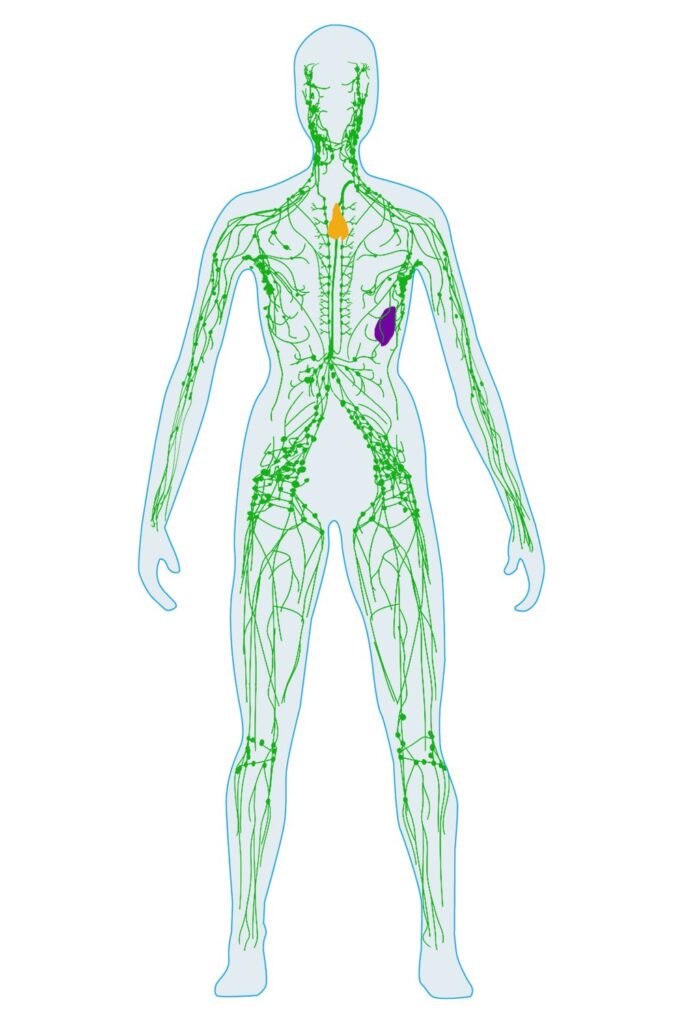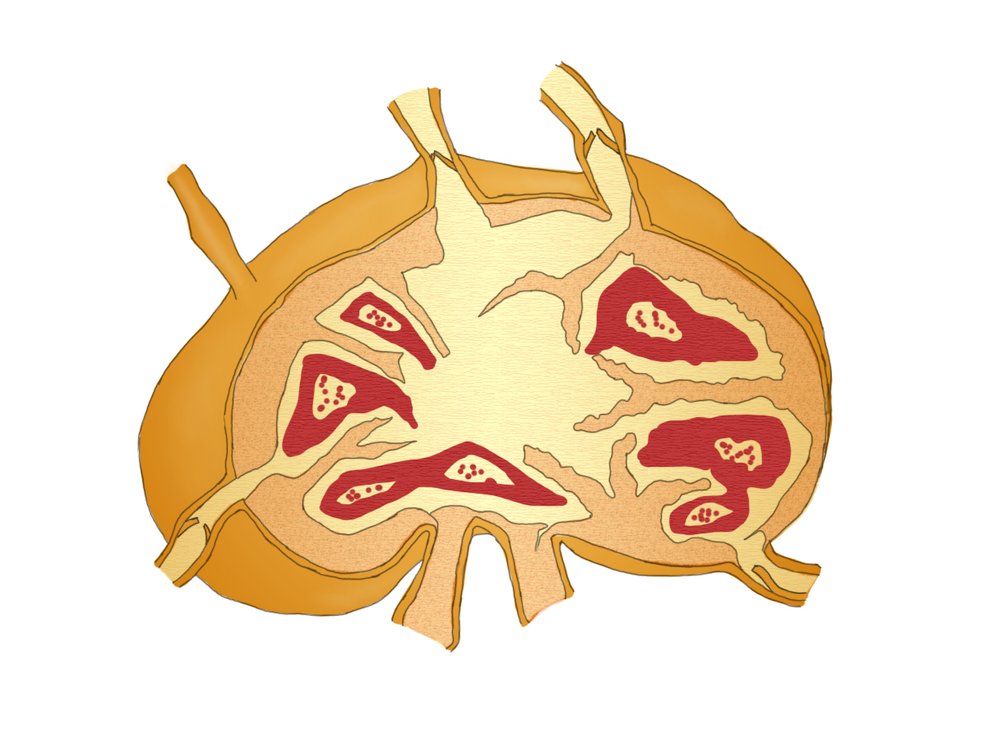My clients hear me talk regularly about stimulating lymph flow and detoxifying the body, but not everyone actually understands the role the lymphatic system plays in keeping you healthy. If you have a few minutes, I’m going to give you a quick tour.
(Stick with me. All the reasons why you need lymph treatments will make sense in a minute.)
The lymphatic system is part of both your immune system and circulatory system, playing key roles in eliminating waste materials from your body, right at the cellular level. It’s a network of vein-like structures that move a liquid called lymph from cells back into your circulatory system.
Lymph is the extra fluid that drains from your cells, along with other substances like proteins, minerals, fats, and other things it can’t use. Cells get nutrients and oxygen delivered to it via capillaries through plasma, kind of like a guy delivering a pizza. The cell takes the whole pizza, but it only consumes what it can use.
Lymph is driving the garbage truck, helping the cell get rid of the extra stuff it doesn’t want. All the extra pieces of pizza the cell couldn’t “eat,” all the pineapple that got ripped off and tossed aside, they need to be discarded. Except, instead of pizza, that “garbage” might be bacteria, viruses, foreign substances, and byproduct of the consumed nutrients. All that excess stuff leaves the cell as lymph fluid, ready to be whisked away through the lymphatic system.
The vessels in which that lymph fluid travels are like veins and capillaries, and they move that lymph fluid in one direction and one direction only – back up to two veins located under the collarbone, where it can be returned to the bloodstream. They’re called subclavian veins, and—

Wait. Lymph is carrying all that garbage, and it’s being dumped back into my blood?
No, no, no. Thanks for your question, I was just about to get to that. Lymph fluid goes through tiny little bean-sized organs called lymph nodes. They filter through all the garbage that lymph is transporting. Lymph nodes contain specialized white blood cells that attack and destroy foreign particles, bacteria, viruses, and abnormal cells. You can find these nodes in the neck, armpits, groin, and other areas deeper in the body.
When you have a cold, those lymph nodes may get swollen and sore, because they’re doing a lot of work to eliminate the virus from your body. When you’re healthy, they are all “business as usual,” removing typical unwanted stuff. And you don’t even notice they’re there.

About 20 litres of plasma are flowing through your bloodstream, delivering nutrients. Then the cells take what they need, they return the leftover fluid and waste products, emptying about 17 litres of that fluid back into the thoracic duct and into the subclavian vein after they’re filtered through the lymph nodes. The other three litres remain in the cells.
Your spleen, tonsils, adenoids, and thymus are organs of the lymphatic system. They each have their own position to play on the lymphatic football field. The tonsils and adenoids trap and tackle invaders that enter your body through air and food. The spleen filters blood, stores it, and produces white blood cells that fight infection and disease. The thymus produces a particular type of white blood cell that attacks foreign organisms. Bone marrow does the same.
In fact, it’s because of the thymus and bone marrow that your body understands which cells are bad and need to be attacked, and which cells are your own, good cells.
Waste gets filtered through your system and ultimately leave your body through your lungs, your bowels, your bladder, and your skin.
That’s a quick-and-dirty overview of how your lymphatic system works. I hope you found it helpful! You can see now what might happen in your body when your lymph system gets slow and sluggish due to age, unhealthy diet, lack of exercise…or if it gets interrupted from its daily work by the onset of disease, surgery recovery, etc.



